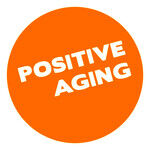We all know that when you're coming down with a cold or the flu, it's best to stay home. Most of us want to stay home. Many of us don't.
One in 4 Americans shows up to work sick. An English study asked why people (not just Americans) are so determined to work under the weather. It looked at data from 61 previous studies involving 175,950 participants in 34 countries.
The biggest reasons the guy in the next cubicle brings his ailing body and germs to work are high job demands, understaffing, time pressures, financial difficulties and low job security — all underscoring the classic cry "I can't afford to be sick."
On the plus side, the researchers found that when employees do take a sick day, colleagues and managers generally support them in this decision.
Cancer and the Pocketbook
A diagnosis of cancer hits hard, in many ways. Beyond the health implications, there are the financial: A recent University of Wyoming study found that the average American adult diagnosed with cancer will miss five weeks of work in the first year and see total family income decline by 20 percent.
The range of impact was wide, of course, depending on cancer type and stage — and the financial situation of the 17,000 adults studied between 1999 and 2009. On average, patients' annual earnings dropped 40 percent over the first two years and remained lower after the cancer diagnosis, though total family income often recovered within four years. Male cancer patients were more strongly impacted than female.
Body of Knowledge
Consumed food moves through the 26-foot-long gastrointestinal tract at a foot every one to three hours, depending upon the person and what was eaten. Food with a lot of roughage moves quicker. A meal might be "in and out" in a day, or could require three. (This week's Thanksgiving meal might take a week or two.)
Gross-out warning: Half the weight of the resulting stool is bacteria.
Get Me That, Stat!
The Centers for Disease Control and Prevention says the percentage of Americans who are uninsured has dropped to 9 percent, down from 11.9 percent last year. Roughly 28 million Americans still lack health insurance.
Number Cruncher
A meal of roast turkey with stuffing, gravy and cranberry sauce (hold the other sides) at Denny's contains 495 calories, 90 from fat. It has 10 grams of total fat or 15 percent of the recommended total fat intake for a 2,000-calorie daily diet.
It also contains 100 milligrams of cholesterol (33 percent), 4,620 milligrams of sodium (193 percent), 62 grams of total carbohydrates (21 percent), 2 grams of dietary fiber (8 percent) zero grams of sugar and 42 grams of protein.
Counts
82: percentage of Americans surveyed who reported seeing prescription drug ads on TV or in print.
28: Percentage who asked their doctors about a drug they saw advertised.
12: percentage of doctors who subsequently prescribed the drug.
Source: Kaiser Family Foundation
Phobia of the week
Anuptaphobia: fear of remaining unmarried.
Never Say Diet
The Major League Eating record for pumpkin pie is 20 pounds, 13 ounces in eight minutes, held by Matt Stonie.
Observation
"According to Freud, if it's not one thing, it's your mother." — comedian Robin Williams (1951-2014)
Medical History
This week in 1989, doctors at the University of Chicago Hospitals implanted part of a woman's liver in her 21-month-old daughter. It was the first successful living donor liver transplant. The liver is the only internal organ capable of regenerating back to its original size.
Self-Exam
Which mental illness has the strongest link to insomnia?
A. Psychosis
B. Bipolar Disorder
C. Depression
D. Paranoid schizophrenia
Answer: C.
Sum Body
Six Ways to Chill Inside an MRI Machine
1. Have a family member or friend present
2. Cover yourself with a warm blanket
3. Use eye pillows
4. Listen to music
5. Focus on controlling your breathing — slow and deep
6. Use guided mental imagery — imagine you are somewhere else
Mycrobes
"Methicillin-resistant Staphylococcus aureus," or MRSA, is a ubiquitous bacterium, and notably nasty because it's impervious to most antibiotics, resulting in hard-to-treat infections where the bug most commonly colonizes: nostrils, lungs, open wounds and urinary tract. Healthy people may carry MRSA asymptomatically for weeks to years, but persons with compromised immune systems are at higher risk of serious secondary infections.
Image courtesy of National Institute of Allergy and Infectious Diseases.
Medical Myths
Taking a so-called "health supplement" doesn't guarantee improved health. For example, too much vitamin C or E has been linked to greater cancer risk. High doses of antioxidants can cause genetic abnormalities. Supplements are much less regulated than prescription drugs. Unproven claims are common. If you're worried about getting sufficient amounts of vitamins, minerals and other nutrients, the best bet is to simply eat better. You can't overdose on healthy food.
Translational Meds
Flibanserin is sold under the trade name Addyi, but popularly dubbed "female Viagra." It is prescribed for pre-menopausal women with "hypoactive sexual desire disorder" or low libido. It works by affecting neurotransmitters in the brain related to sexual response. Adverse side effects include dizziness, nausea, fatigue and sleepiness.
Med School
Q: How many cells in a drop of blood?
A: 250 million
Epitaphs
"You're standing on my face." — headstone of Ian Rowlins (1983-2004) in Buffalo, New York.
To find out more about Scott LaFee and read features by otherCreators Syndicate writers and cartoonists, visit the Creators Syndicate website at www.creators.com.






View Comments